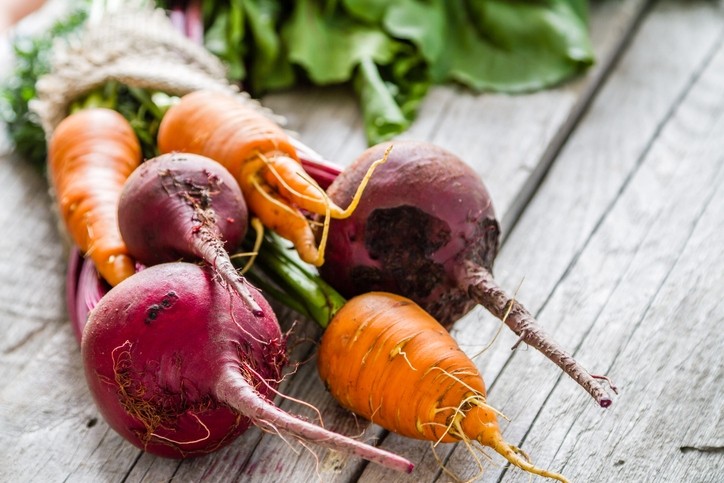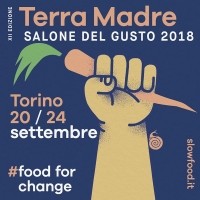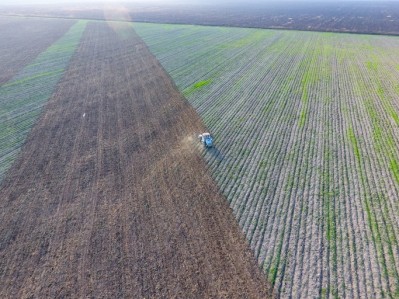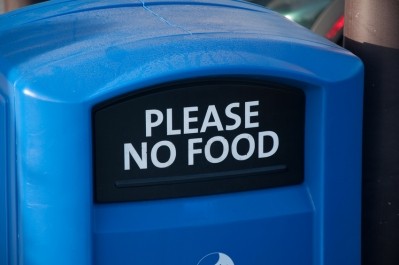Fast food versus slow food: A choice of ‘ethics and sustainability’

Speaking in Turin, Italy, Andriukaitis stressed that food production needs to become more sustainable and beneficial to small businesses and communities in Europe.
Addressing biennial conference Terra Madre Salone del Gusto, an event organised by grass roots organisation Slow Food in conjunction with the Italy’s Ministry for Agricultural, Food and Forestry Policies, Andriukaitis praised the work of the Terra Madre project, which supports small scale food producers in Europe.
Terra Madre is a network of food communities launched by Slow Food with the ambition of promoting small-scale farmers, breeders, fishers and food artisans, whose approach to food production protects the environment and communities. The network brings them together with academics, cooks, consumers and youth groups so that they can join forces in working to improve the food system.
“Terra Madre is asking us to preserve the planet. Choosing between fast food and slow food is our choice, it is a choice of ethics and sustainability,” Andriukaitis suggested.
Food waste: ‘A 21st century scandal’
Discussing the state of the food industry during a forum on fighting food waste, Andriukaitis said: “Food waste is a twenty-first century scandal”.
He insisted that it is “unacceptable” that European consumers waste on average between 95kg and 115kg of food each year while “millions” of people around the world go to bed hungry.
To tackle this issue, Andriukaitis stressed the importance of enabling behavioural change at a consumer level. Praising the Disco Soup events organised by Slow Food, he stressed: “We need creative alternatives, accessible solutions, relevant to reality.”
Andriukaitis continued to throw the EU’s weight between food donations and redistribution as a means to cut food waste. The EU has favoured this approach for a number of years – but campaigners, including Slow Food, have suggested that it fails fundamentally to tackle food waste and only addresses the symptoms of the problem – not the cause.
The EU has committed to achieve the Sustainable Development Goals, one of which is to reduce food waste by half by 2030. According to Andriukaitis, the Commission will consider establishing EU-wide food waste reduction targets, to be met by the targeted year. These targets were not, however, included in a recently approved waste framework directive.
Terra Madre Salone del Gusto was held in Torino, Italy, from the 20th to the 24th September. The event aims to promote sustainability in food production.
Antimicrobial resistance: a growing threat
The European Health and Food Safety Commissioner also took the opportunity to spotlight his concern over the growth of antibiotic resistance (AMR).
During a forum dedicated to the topic, the Commissioner called for a stop to the unnecessary and inappropriate use of antibiotics in farming. “AMR will only get worse in the future if we do not inspire change in the present.”
In the EU alone, AMR is linked to 25,000 deaths a year. Globally, the European Union has taken a lead in moving away from the routine use of antibiotics in the food chain. In 2006, the EU imposed one of the first bans on antibiotics in feed additives for livestock. Last year, it introduced a new EU action plan, which aims to help the Member States to deliver innovative, effective, and sustainable responses to AMR.
According to Slow Food, this is not enough. “Civil society expects more concrete and urgent action to be taken,” the grass roots movement warned.
Supporting an ‘urgent transition’ to sustainable food
Throughout the event, delegates insisted that the EU should leverage policy to foster the “urgent transition” to a sustainable food system.
The biennial Terra Madre event has partnered with European Days of Action this year to form a movement that is calling for changes to the proposed Common Agricultural Policy after 2020 in order to deliver a “better CAP”.
The EC presented new legislative proposals on the CAP beyond 2020, aiming to modernize and simplify it, in June. Speaking at the forum on the EU’s CAP proposals, Angelo Innamorati EC DG Agriculture and Rural Development, said that the current CAP needed to be updated for several reasons. In particular, he flagged Brexit – which will cut contributions by €12bn annually – and the criticism that ecological or ‘greening’ initiatives contained within the policy have attracted.
Nevertheless, Innamorati moved to reassure farming communities, emphasising that the same support structure for farmers will remain. “Without support for farmers, agricultural activities would not be able to continue.”
The CAP reform - proposed earlier this summer – has however prompted a wave of criticism from civil society. Slow Food has identified key areas of concern, which included a decision to delegate the responsibility of deciding the future of European farming to the Member States. European farmers have also expressed their concerns about proposed cuts in the new CAP.
Jacopo Goracci, the coordinator of the Maremma Cattle Slow Food Presidium, noted that all new freedoms and flexibilities provided at a national level with the new CAP are frightening. “We do not have certainty, we do not have clear goals, and this is important.” Goracci emphasized that a transitional model is needed to provide farmers “not [with] options but rather guidance and assurance.”
“Slow Food has been calling for a CAP that effectively integrates other food-related policies,” said Nino Pascale, the president of Slow Food Italia, adding that the new CAP still remained disconnected to other policies. In particular, Pascale drew attention to the importance of protecting biodiversity, which lacks endorsement and proper financial support in the new CAP.










